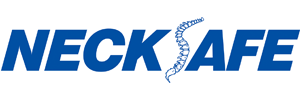Signs and Symptoms
The diagnosis of acute concussion usually involves assessment of a range of domains including clinical symptoms, physical signs, cognitive impairment, neurobehavioral features and sleep disturbance.
The suspected diagnosis of concussion can include one more of the following:
Symptoms including headache, dizziness, nausea, vomiting, blurred vision, sensitivity to light and/or noise;
Physical signs can include being slow to get up after an impact, holding of the head, unsteadiness, a dazed look, loss of balance and poor co-ordination and a witnessed loss of consciousness (in about 10% of cases);
Behavioural and emotional changes in the post injury period may include uncharacteristic irritability, sadness, anxiety etc;
Cognitive impairment is usually evidenced by slowed recreation times, difficulty concentrating, amnesia, feeling in a fog or confusion; and
Sleep disturbances typically are reported in the day or weeks following with the person sleeping more or less than usual or suffering insomnia.
If any one or more of these components is present, a concussion should be suspected and the appropriate management strategy instituted.
- Symptoms
- somatic (e.g. headache)
- cognitive (e.g. feeling like in a fog)
- emotional symptoms (e.g. lability)
- Physical signs (e.g. loss of consciousness, amnesia)
- Behavioural changes (e.g. irritability)
- Cognitive impairment (e.g. slowed reaction times)
- Sleep disturbance (e.g. drowsiness, insomnia)
If any one or more of these components is present,
concussion should be suspected and the appropriate management strategy instituted
Common signs and symptoms
One or more of these common symptoms and signs is usually present in concussion, however none on their own or in combination are specifically diagnostic:
- Loss of Consciousness may or may not be a feature. Concussion can result WITHOUT loss of consciousness occurring
- Headache
- Dizziness
- Nausea/vomiting
- Unaware of period, opposition, score
- Confusion
- Amnesia
- Unaware of time, place, date
- Vacant stare/glassy eyed
- Slurred speech
- Feeling “dinged,” “slow,” “foggy”
- Visual changes
- Sensitivity to light/sound
- Unusual/inappropriate emotions (cry, laugh)
- Inappropriate playing behavior
- Seizure
Common Symptoms
Recent studies concussion show that headache dizziness are amongst the more commonly reported symptom whilst specific signs may be harder to demonstrate (especially if testing is not undertaken to evaluate them)
Normative Values of Major SCAT2 and SCAT3 Components for a College Athlete Population
Adam Zimmer, Jaquelyn Marcinak, Stuart Hibyan & Frank Webbe
Psychology, Florida Institute of Technology , Melbourne , Florida, Published online: 12 Aug 2014.




